Coronavirus: How we kept the poppy factory running during lockdown
- Published
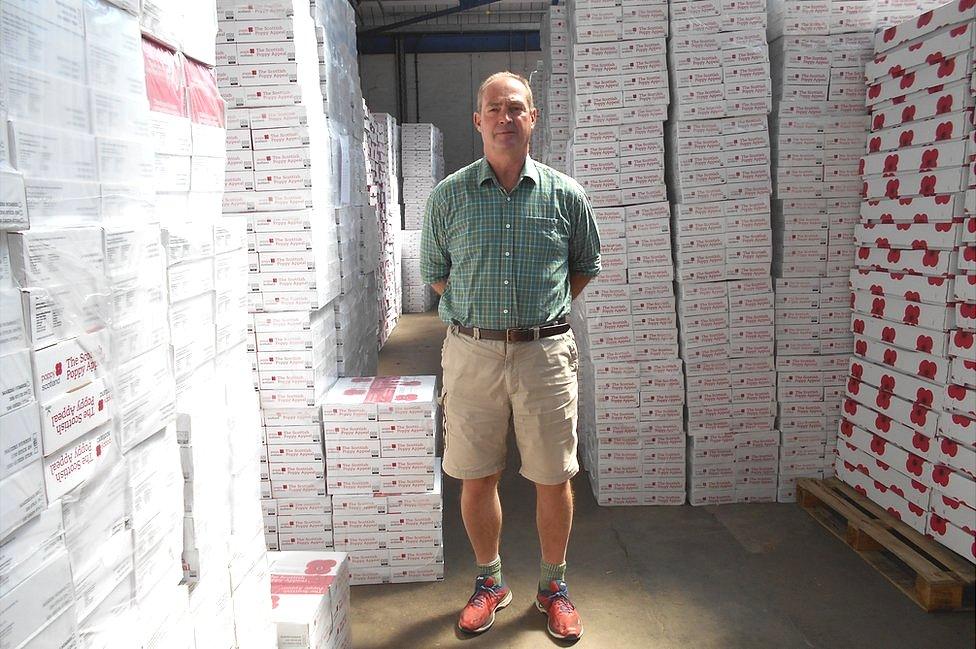
Factory manager Major Charlie Pelling says he's very proud of his team
A team of disabled military veterans have worked through lockdown to make four million poppies for this year's remembrance events.
The ex-servicemen and women made tens of thousands of poppies every week from their homes in a bid to meet their 1 June deadline.
They collected the materials from the Lady Haig Poppy Factory in Redford Barracks in Edinburgh every two weeks.
Factory manager Major Charlie Pelling said he was very proud of his team.
He said that if they had stopped working during lockdown they would not have been able to meet their target.
"If we had stopped we would not have been able to deliver the poppy appeal," he added. "I think it it is very important to maintain these iconic moments."
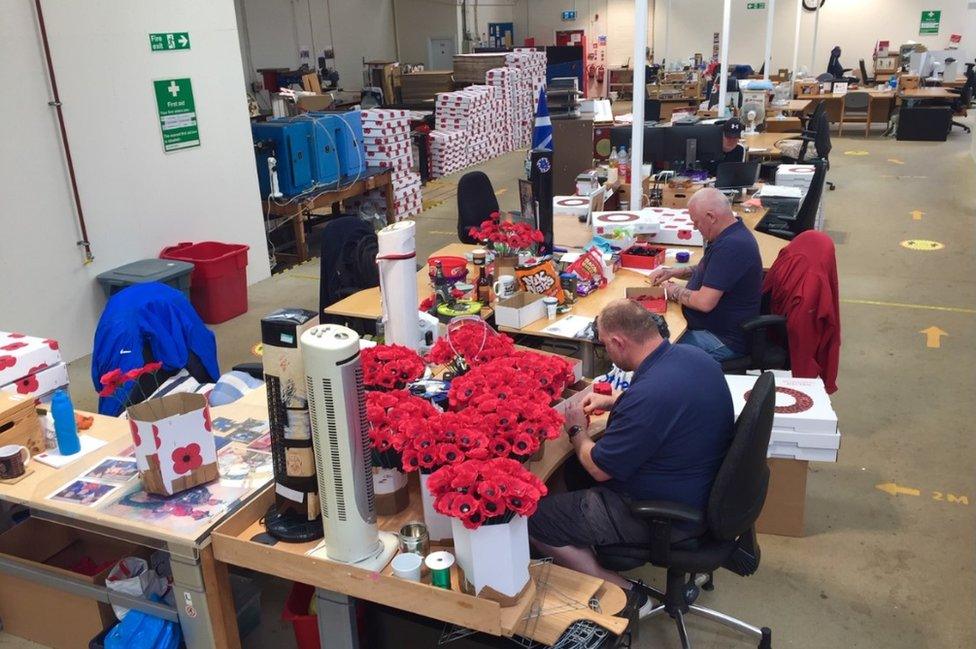
The veterans are making wreaths in the factory now that all four million poppies have been made
Major Pelling said the factory was closed for the first two weeks of lockdown while 22 workers continued to make 8,000 poppies each from home.
Then a core team of 14 reopened the factory to use the machinery to make the petals and to provide the materials for workers to pick up from the back door every fortnight.
Money raised from selling poppies helps support vulnerable ex-servicemen and women - and their families.
Major Pelling said he was determined to keep the operation going.
"The guys have done it with enthusiasm and commitment and it wouldn't have happened without their fantastic attitude, nobody was coerced and it was done exceptionally well," he added.
"If we did not produce the four million quota of poppies it would have had a direct impact on our fundraising.
"It is also very important that we maintained the business so that we didn't put any jobs at risk by having people just sitting at home."
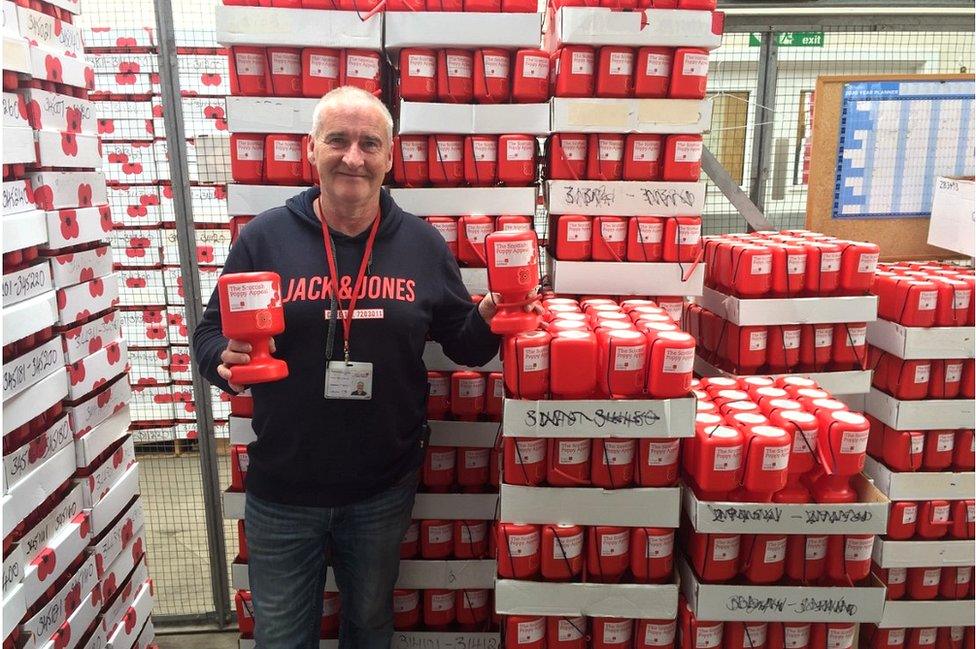
Lids need to be put on 30,000 collection tins
Now the factory has fully reopened again to make poppy collection tins and wreaths. The lid has to be broken to remove the money collected from the previous year so new lids need to be attached on 30,000 tins.
The factory, which opened in 1926, was temporarily moved from its home in Edinburgh's Canonmills 18 months ago for a major refurbishment.
Factory foreman George Couper, 49, who was in the King's Own Scottish Borderers said the team worked from their homes in Edinburgh, Fife, Falkirk and Midlothian.
Antony Hodkinson, 52, who was an Army mechanic in R.E.M.E until 2013, said he had hardly noticed there was a lockdown because he had carried on working throughout.
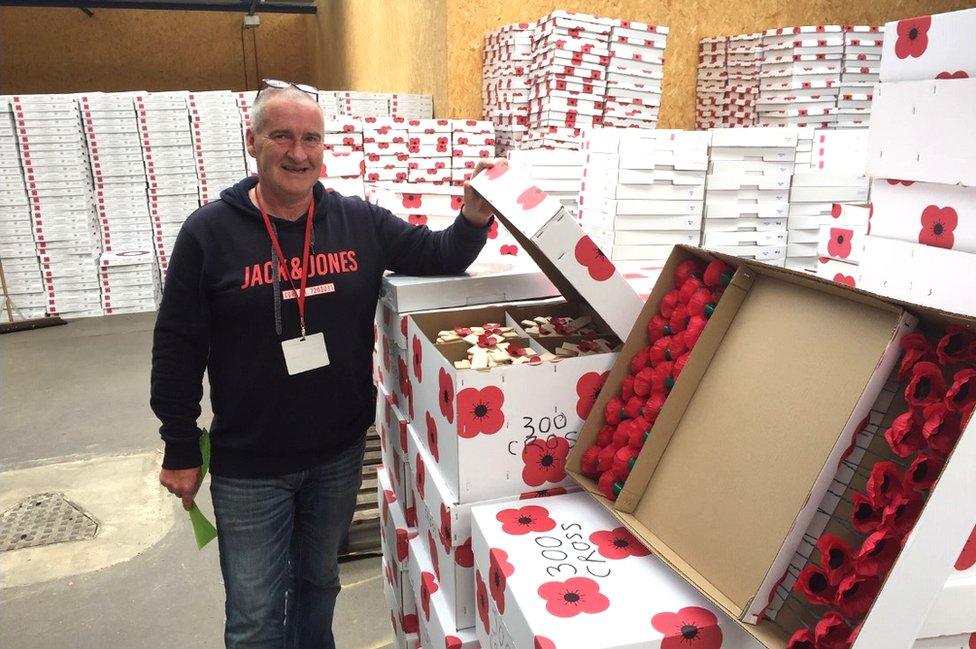
Paul Dickson is the storeman in charge of poppy distribution
He said: "What lockdown? We've just got on with it.
"You can't just stop or we would not have any food or nurses, you have got to carry on.
"I wanted to keep making poppies to commemorate those who have paid the ultimate price for your freedom, to respect them and those who are still on the frontline now."
Paul Dickson, 55, who was in the Scots Guards for 22 years and in the first Gulf War, has metal plates in his legs after being thrown from a horse while in Kenya in 2000.
The storeman said: "I'm glad I'm back at the factory now because I live on my own and it gets me out of the house, I like the banter and I'm proud we have met our target."
John Mitchell, 64, who was in the Scots Guard for 21 years and who has been working in the factory for two years, said: "It was a God-send when I got the call to come back to work so I could see the others again."
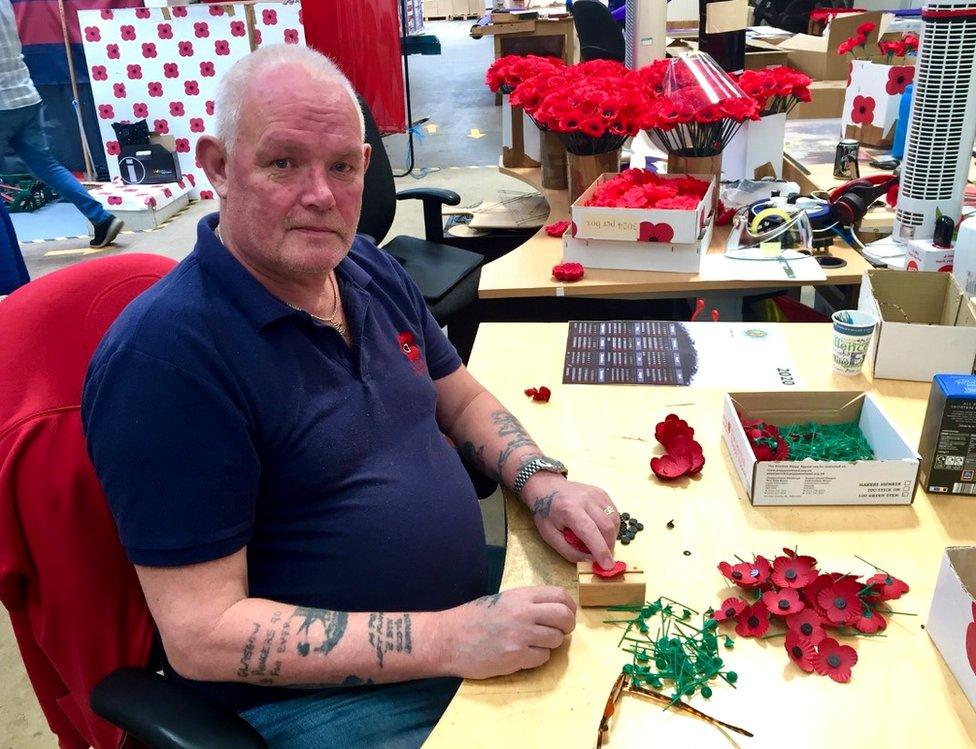
John Mitchell said he was glad to be back in the factory